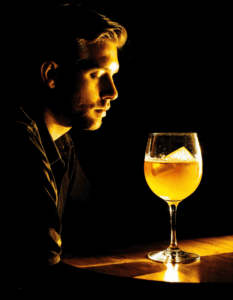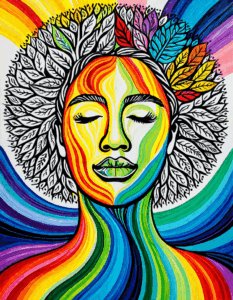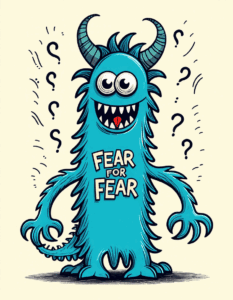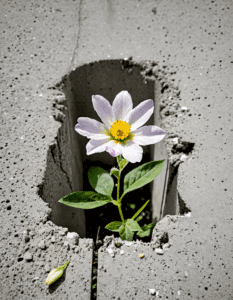In an ever-evolving approach to addiction recovery, holistic addiction treatment is changing the way we address this complex issue. Unlike traditional methods that mainly target the physical dependence on substances, holistic treatment recognizes the interconnectedness of mind, body, and spirit. Focusing on mental, emotional, spiritual, and physical aspects, this therapeutic method aims for overall well-being and sustainable recovery. As we move into 2024, the holistic approach is becoming a cornerstone for achieving lasting recovery.
Understanding Holistic Addiction Treatment
So, what exactly is holistic addiction treatment? In simple terms, it’s a comprehensive way to treat addiction by looking at the whole person, not just the addiction. Holistic addiction treatment integrates various modalities ranging from mindfulness and exercise to nutritional therapy and spiritual practices. This fusion aims to help individuals not only break free from substance use but also reclaim their overall well-being.
The Core Principles of Holistic Addiction Treatment
Comprehensive Healing Approaches
Holistic addiction treatment is all about comprehensive healing. It integrates diverse therapies designed to rebuild a person’s life, including:
Role of Mental Health in Holistic Addiction Treatment
Mental well-being is indispensable in the holistic approach, given its profound impact on overall health.
Cognitive Behavioral Therapy (CBT)
CBT is not just a therapy; it’s a critical component of holistic addiction treatment. For instance, the National Institute for the Clinical Application of Behavioral Medicine (NICABM) uses CBT to help individuals identify and change negative thought patterns that contribute to addiction.
Art and Music Therapy
Art and music therapy offer alternative ways for individuals to express themselves and process their emotions. Organizations like Harmony Recovery Group integrate these therapies, providing patients with creative outlets to understand and confront their struggles.
| Aspect | Description |
|---|---|
| Definition | Holistic addiction treatment focuses on healing the whole person—physically, emotionally, mentally, and spiritually—rather than just addressing the addiction itself. |
| Core Principle | This approach is rooted in the belief that recovery should involve the development of skills and tools to manage overall mental health and improve quality of life. |
| Physical Wellbeing | Includes physical activities like yoga, aerobics, and walking that improve overall health, reduce stress, and enhance mind-body connection. |
| Emotional Health | Encourages therapies like meditation, art therapy, and counseling to manage emotions and mental health. |
| Social Support | Fosters a support network through group therapy, family therapy, and community involvement to rebuild connections and reduce isolation. |
| Spiritual Wellbeing | Engages practices like mindfulness, prayer, or spiritual counseling to nurture the soul and promote inner peace and acceptance. |
| Yoga | Utilizes relaxation techniques, controlled breathing, and physical poses to improve overall health and mental clarity. |
| General Exercise | Includes activities like walking or aerobics that improve physical fitness, mental health, and overall wellbeing. |
| Benefits |
Incorporating Spiritual Practices for Recovery
Spirituality often takes a backseat in conventional treatments, but not in holistic addiction treatment.
12-Step Programs and Beyond
Programs like Alcoholics Anonymous (AA) and Narcotics Anonymous (NA) have long included spiritual elements, emphasizing a connection to a higher power. This can be incredibly empowering and provide a sense of purpose and direction.
Meditation and Yoga
Yoga centers like Kripalu Center for Yoga & Health offer spiritual practices that include meditation and yoga. These practices help individuals connect with their inner selves, promoting peace and a sense of purpose.
The Importance of Emotional Healing
Family Therapy
Family support is crucial in the journey toward recovery. Institutions such as the Hazelden Betty Ford Foundation offer family therapy to restore trust and communication. By involving the family, recovery becomes a collective effort, enhancing the emotional support system necessary for lasting recovery.
Equine Therapy
Unique therapies like equine therapy, offered by places like The Ranch, involve interactions with horses to foster emotional insight and personal growth. Working with these animals can help individuals develop trust, empathy, and emotional regulation.
Analyzing Success Rates: How Effective is Holistic Addiction Treatment?
Studies have shown that holistic addiction treatments yield promising results. A 2023 study by Johns Hopkins University revealed higher sustained recovery rates in patients who underwent holistic therapies compared to traditional approaches. This is largely because holistic treatments address the interconnected aspects of addiction — physical, mental, emotional, and spiritual health are all considered.
Testimonials and Case Studies: Real-Life Successes
Emma’s Journey at Promises Behavioral Health
Emma, a 32-year-old recovering addict, attributes her sobriety to the holistic approach at Promises Behavioral Health. Her customized treatment plan, including mindfulness exercises, nutritional guidance, and CBT, empowered her to reclaim her life.
David’s Experience with The Sanctuary at Sedona
An example like David Hart, actor, found success through The Sanctuary at Sedona. Utilizing alternative therapies like acupuncture, breathwork, and energy healing, David experienced a profound transformation that led to his recovery.
Moving Towards a Holistic Future
Looking ahead, it is clear that adopting holistic addiction treatment is more than just a trend. This method’s comprehensive approach promises a brighter future for addiction treatment, ensuring that recovery is enduring, fulfilling, and life-affirming. By addressing the whole person — mind, body, and spirit — holistic addiction treatment truly paves the way for sustainable recovery, changing lives for the better.
Adopting holistic addiction treatment for lasting recovery is not just beneficial; it’s essential. This approach not only removes the substances but also heals the person as a whole. It offers a beacon of hope for those entangled by addiction, providing them with the tools and support for a lifetime of sobriety.
For more information on holistic methods and therapies, visit Mothers Against Addiction.
Holistic Addiction Treatment
Holistic addiction treatment focuses on treating the whole person – mind, body, and spirit – instead of solely addressing the addiction itself. By using a multi-faceted approach, holistic methods aim to provide lasting recovery and help individuals regain their overall well-being.
Mind and Spirit
One fascinating aspect of holistic addiction treatment is the integration of mindful practices like meditation and yoga. Ancient methods, used by different cultures across history, demonstrate the benefits of calming the mind and reducing stress. Even modern-day personalities, such as the famous actor David Hart, have found solace in such practices, spotlighting their broad appeal.
Another key component is family therapy. Supporting individuals within the context of their family can offer a robust foundation for recovery. Family dynamics play a crucial role, and integrating the family can offer significant breakthroughs that more conventional therapies might miss. It’s like pitting holistic methods against the structured approach of – where both have their merits but serve different needs.
Body and Nutrition
The concept of healing through appropriate nutrition cannot be overstated. Some experts recommend certain diets to aid recovery, though these are often paired with Medication-assisted treatment ( Mat ) to address both physical cravings and nutritional deficiencies. Think of it like the balanced training of a heavyweight champ preparing for an epic bout like Tyson Fury Vs Usyk – you need a comprehensive regimen.
Interestingly, integrating fun into recovery processes also makes a noticeable difference. For instance, engaging in enjoyable activities like gaming can relieve stress and prevent relapse. Some therapies even incorporate character analysis from popular games, like the strategic thinking involved in Genshin Impact’s Mona, demonstrating the introduction of creative, relatable methods into treatment.
The Power of Support
Peer support plays an instrumental role in holistic addiction treatment. It’s shown that individuals feel less isolated and more understood when they are part of a supportive community. This mirrors the concept of Peer support in recovery, where shared experiences foster a sense of belonging and accountability crucial for sustaining progress.
On a practical note, something as simple as knowing about commonly used medications, like the blue pill L368, can be empowering for families and individuals. With proper guidance, such knowledge demystifies the recovery process and helps align expectations with realistic outcomes.
In essence, holistic addiction treatment isn’t just about breaking free from addiction. It’s about embracing a well-rounded lifestyle, holistic in every sense, to foster lifelong recovery and happiness.
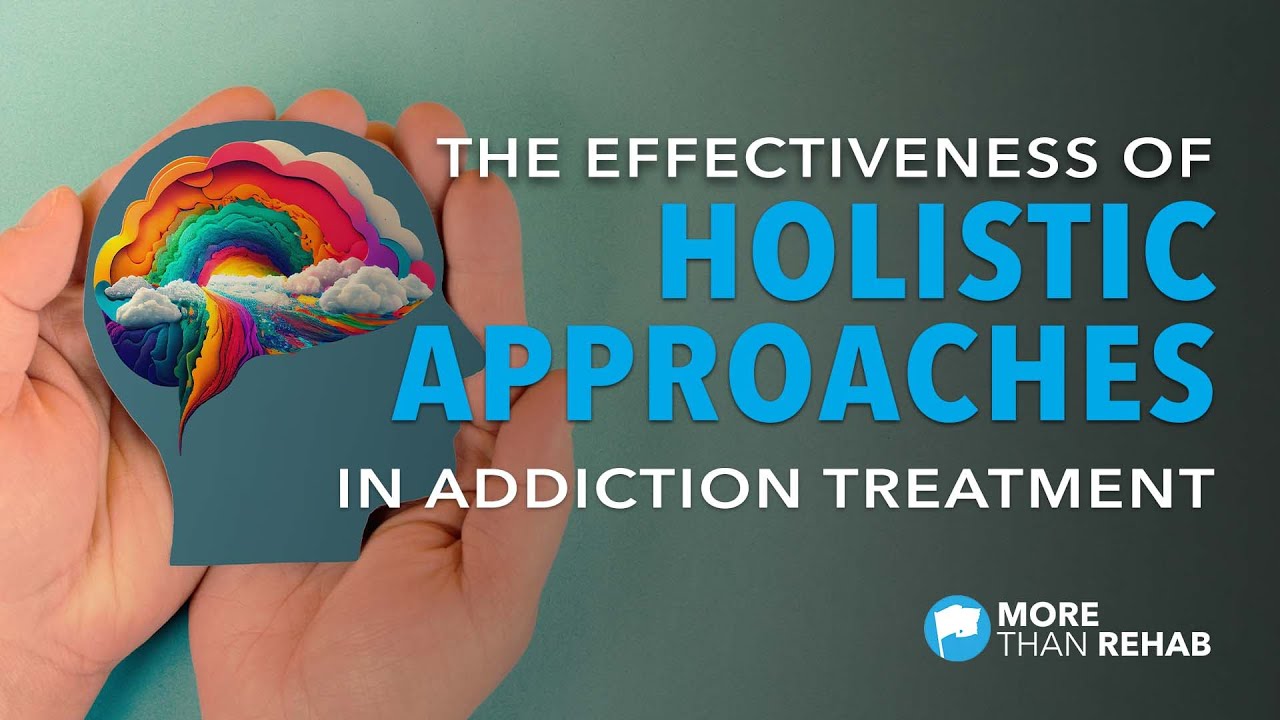
What is a holistic approach to recovery?
A holistic approach to recovery looks at the entire person, not just their mental health needs. It considers physical, emotional, social, and spiritual wellbeing to help individuals become their best selves.
What is a holistic treatment method?
Holistic treatment methods draw on an individual’s internal needs and innate drive to become self-actualized. These treatments develop the skills and tools necessary for long-term mental health management.
What is an example of holistic rehabilitation?
An example of holistic rehabilitation is yoga, which uses relaxation techniques, controlled breathing, and physical poses to improve the health of both mind and body.
What herbs are against addiction?
Specific herbs against addiction aren’t typically highlighted in holistic approaches; rather, they focus on lifestyle changes, mental health support, and physical well-being for recovery.
What are the 5 holistic approaches?
The five holistic approaches include considering a person’s mind, body, emotion, spirit, and social factors to provide comprehensive support.
What are the 7 holistic approach?
The seven holistic approach components target the physical, emotional, mental, spiritual, environmental, social, and occupational realms of a person’s life to promote well-rounded health.
What is an example of a holistic treatment?
Holistic treatment might involve practices like yoga, meditation, and mindful exercise to improve overall health rather than just focusing on mental health alone.
What is the most popular holistic therapy?
Yoga is one of the most popular holistic therapies, as it melds physical movement, controlled breathing, and relaxation techniques to improve both mental and physical health.
What are the disadvantages of a holistic approach?
The disadvantages of a holistic approach might include a lack of scientific validation for some treatments, and it may require a significant time and lifestyle commitment that some might find challenging.
What does a holistic therapist do?
A holistic therapist works on treating the whole person by addressing physical, mental, emotional, and spiritual aspects, often using a variety of techniques and therapies tailored to each individual.
What are the techniques of holistic therapy?
Techniques of holistic therapy can include yoga, meditation, acupuncture, massage, and mindful breathing exercises to promote overall wellbeing.
What is an example of a holistic healer?
An example of a holistic healer could be a practitioner who uses a mix of acupuncture, herbal remedies, and meditation to treat a person’s ailments comprehensively.
How do I permanently stop my addiction?
Permanently stopping an addiction usually requires a combination of psychotherapy, lifestyle changes, support groups, and sometimes medical interventions. Holistic methods can support these traditional methods but should not replace them entirely.
What herb stops cravings?
One herb often mentioned to stop cravings is kudzu, which has been studied for its potential to reduce alcohol dependence.
What plant helps with opioid addiction?
The Californian poppy is a plant that some believe may help with opioid addiction, although more research is needed to confirm its efficacy.
What is holistic healing approach?
Holistic healing approaches focus on supporting the entire person to achieve optimal health through physical, emotional, mental, and spiritual practices.
What is a holistic approach example?
An example of a holistic approach could be someone managing stress through a combination of meditation (mental), exercise (physical), social support (social), and prayer or reflection (spiritual).
What are the holistic ways to heal?
Holistic ways to heal include engaging in regular physical activity, practicing mindfulness or meditation, maintaining a balanced diet, seeking social support, and fostering spiritual practices.
What are the holistic treatments of healing?
Holistic treatments of healing might involve therapies like yoga, meditation, acupuncture, nutrition counseling, and emotional wellness practices such as journaling or therapy sessions.













